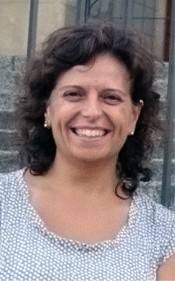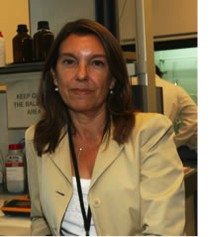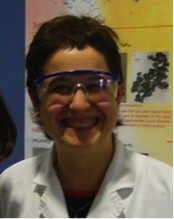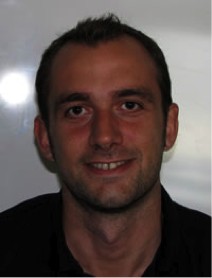 |
 |
Elena Fernández
mariaelena.fernandez@urv.cat
Elena Fernández was born in 1968 in Spain. She received her undergraduate degree in chemistry at the University of Barcelona in 1991. She subsequently did graduate work in catalytic hydroformylation of sugars with Prof. Sergio Castillón and Dr. A. Ruiz at the University Rovira i Virgili, from which she earned her Ph.D. in 1995. The following two years, she moved at the University of Oxford (UK) to a postdoctoral position with Prof. John M. Brown where her studies culminated with an approach towards the first catalytic asymmetric hydroboration-amination reaction.
Elena returned to Tarragona and accepted a lecturer position working in collaboration with Prof. Carmen Claver at the University Rovira i Virgili, becoming part of the permanent staff in 2000. She is full professor from ANECA since 2011. Her group’s research interests are centred on the application of transition metal complexes in selective organic purposes. More particularly, she has initiated a research program aimed at developing catalytic tandem organic sequences through selective boron addition chemistry. Current interest is also devoted to enantioselective organocatalytic boron addition reactions.
|
|
 |
|
Carmen Claver
carmen.claver@urv.cat
Carmen Claver is Professor in Inorganic Chemistry at the University Rovira i Virgili (URV) in Tarragona, from 1991. She obtained her PhD in Chemistry in 1978 at the University of Zaragoza, working in the field of organometallic chemisty and homogenoeus catalysis under the supervision of Prof. Luis Oro. Her research interests are aimed at the development of advanced catalysis with transition metals, synthesis of ligands and complexes as well as characterization of intermediate species with special focus on asymmetric catalysis. Within the last years, her research has moved to the field of nanocatalysis. She is co-authors of a significant number of contributions (240) and she has participated in the edition and publication of several books. She has received scientific prizes such as “Investigador Distinguido” by the catalán goverment in 2003, excellence chair "Pierre de Fermat” in France in 2009. In 2010 she becaem member of the Real Academia de Ciencias Exactas, Físicas y Naturales, and in 2012 she became member of the "European Academy". From 2009 she is Scientific Director of the Technological Center of Chemistry in Catalunya.
|
|
 |
|
Anna M. Masdeu Bultó
annamaria.masdeu@urv.cat
Anna M. Masdeu-Bultó (born in Reus, PhD in 1992 at the Chemistry Faculty, Tarragona) is Profesora Titular de Universidad of Inorganic Chemistry in the Physical and Inorganic Chemistry Department at the University Rovira i Virgili since 1996. Her research interests in Chemistry are focused on the metal based complexes as catalysts for carbonylation (hydroformylation, alcoxycarbonylation, copolymerization CO/alkene), hydrogenation and other processes. Her research is especially devoted to the use of environmental low impact solvents such as water and carbon dioxide. Related to this later subject, since 2002, she is studying the possibilities of using carbon dioxide as a solvent in catalytic reactions and as a C1 building block for the synthesis of organic carbonates. |
|
 |
|
Cyril Godard
cyril.godard@urv.cat
Cyril Godard was born in Saint-Rémy, France in 1974. He completed his undergraduate studies at the Université Paul Sabatier in Toulouse and was awarded a Ph-D from the University of York, UK, in 2004 under the supervision of Prof. R. N. Perutz and Prof. S. B. Duckett. After a postdoctoral position in York working on mechanistic studies using Para-Hydrogen Induced Polarisation techniques, he joined the Universtat Rovira i Virgili in Tarragona, Spain, where he is currently junior lecturer in Inorganic Chemistry. His research interests lie in the areas of organometallic chemistry and transition metal nanoparticles, enantioselective processes and reaction mechanisms.
|
